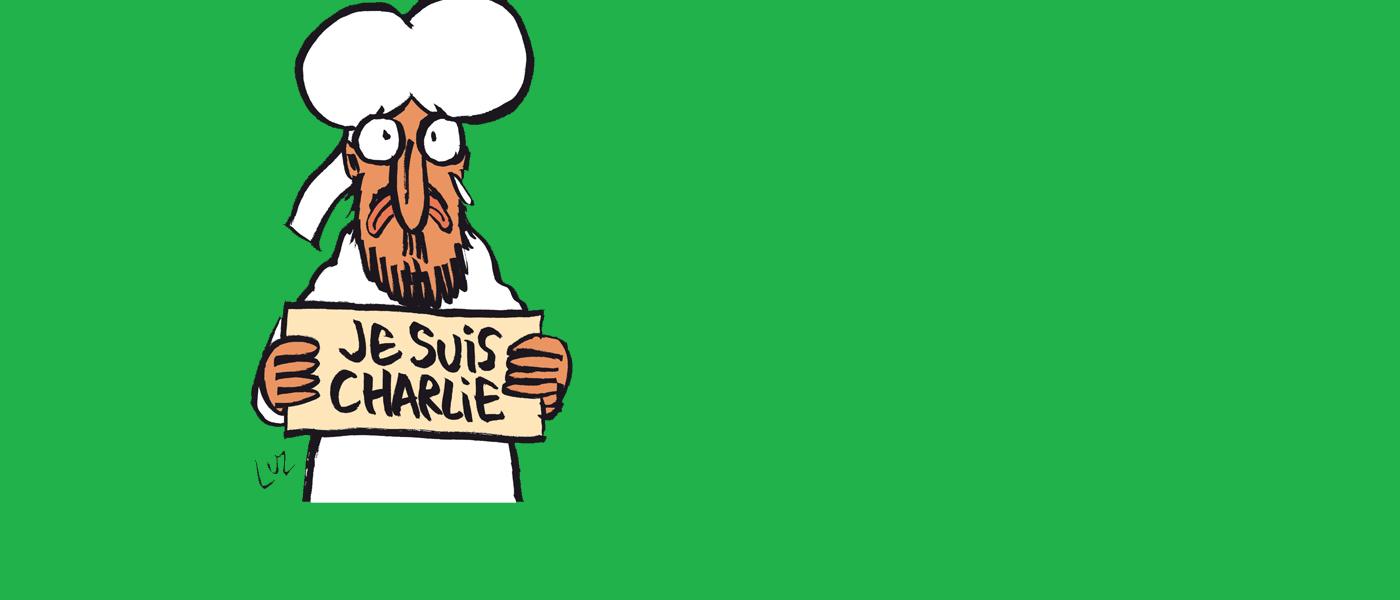On 10th Anniversary Of Massacre, Charlie Hebdo Mocks All Believers
In a decade, more than 300 French have been murdered by Muslim terrorists.

Ten years ago, on January 7, 2015, brothers Saïd and Chérif Kouachi stormed into the editorial meeting of the satirical weekly Charlie Hebdo in Paris. They did so carrying Kalashnikovs and killed twelve people in their path. It was the response of these Islamic fanatics to the reproduction of cartoons of Mohammed. A decade later, the weekly has continued to go out on the streets and finds in religion one of its greatest inspirations.
The attack occurred after a series of moves by Islamist groups against freedom of expression. The most direct but remote precedent was the murder in 2004 of the filmmaker Theo Van Gogh – descendant of the painter – after directing a short film critical of Islam. This was joined by complaints in Denmark by the writer Kåre Bluitgen that he could not find an illustrator for a work on Mohammed, which prompted the newspaper 'Jyllans-Posten' to ask the members of the Danish cartoonists' union to take a stand on whether or not they would draw the prophet of Islam. Twelve of them responded and were published on September 30, 2005 by the newspaper, opening a wave of protests. These images were published months later by the French newspaper 'France-Soir' and its director was fired, so the following week the radical left-wing satirist 'Charlie Hebdo' published them, being denounced by the main Islamic associations in the country, which went to court, which the editors won.
The judicial victory meant that the weekly continued to publish cartoons against Islamic fundamentalism – some even with a naked Mohammed – leading to a firebomb being thrown at the headquarters in November 2011. In 2015, Al Qaeda claimed responsibility for the attack in which up to 50 shots were fired. Now the situation has changed and the current director of the magazine, Laurent Sourisseau (Riss), told the Spanish newspaper 'El Mundo' that what he denounced has become a reality, "the return of religion to the political sphere and the radicalisation of minds, both on the religious and political level, as can be seen with the extreme right."
For the cartoonist, "it is surprising to see that the return of the moral order comes from the left. In the name of the fight against political incorrectness, freedom of expression has become suspect," he points out, denouncing self-censorship in the Islamic world compared to satires against other religious traditions.
For this reason, the weekly Charlie Hebdo magazine has not ceased to provoke and called on cartoonists to compete in ridiculing God on this tenth anniversary. It published a special edition today in France. The contest was open to everyone until last December 18 and published in this week's special edition. "All those who are fed up with living in a society guided by God and religion, those who are fed up with them with the so-called good and evil, those who are fed up with all the religious leaders who are dictating our lives, therefore, have been able to participate in our contest," they point out in the issue. The published finalists may make even Spanish singer Lalachus's recent pose mocking the Catholic icon of the Sacred Heart look like child's play.
The special edition is titled 'Laughing at God." Charlie Hebdo continues to publish its weekly edition, having a circulation (print and online combined) of around 50,000. The whereabouts of its editorial offices are kept secret, and its staff are protected by bodyguards.
The January 2015 attack on Charlie Hebdo caused the death of 12. In November that year, Muslim terrorists attacked the Bataclan theatre and nearby bars in Paris. Gunmen and bombers killed 130. In July 2016, In the following July, 86 people were killed on the promenade in Nice. Approximately 300 French people have died in Islamist attacks in the last decade.